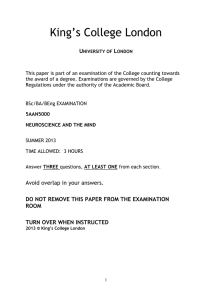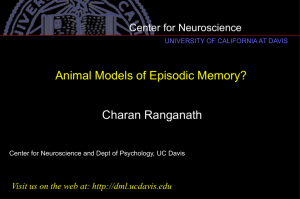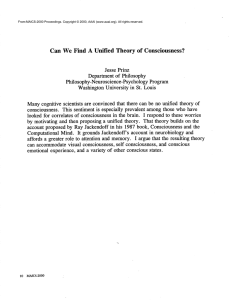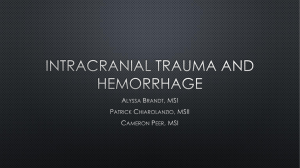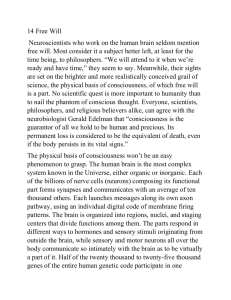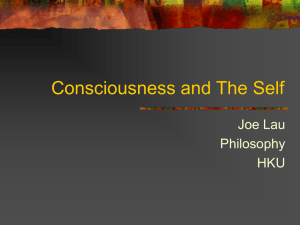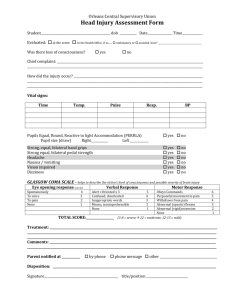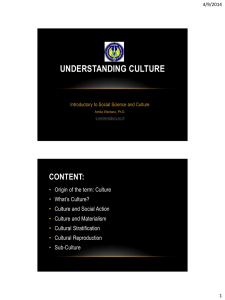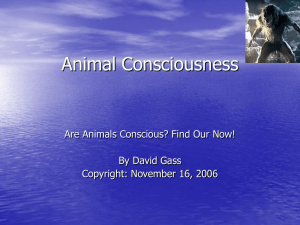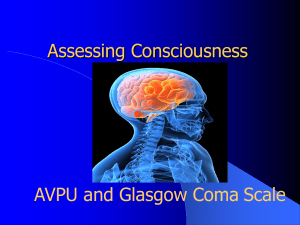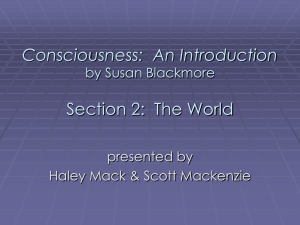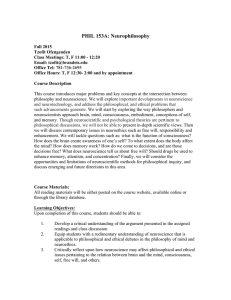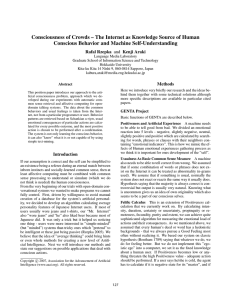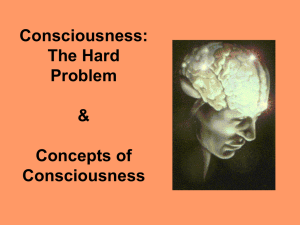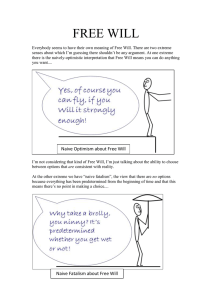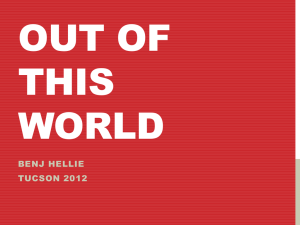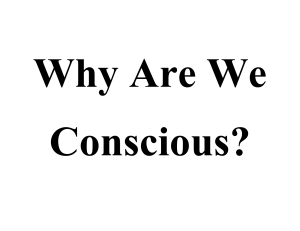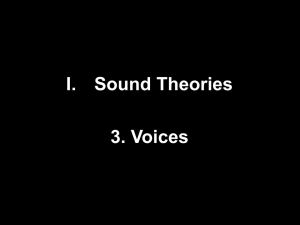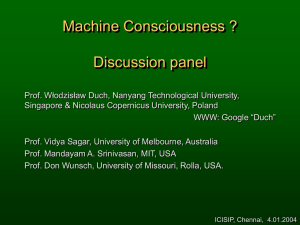Neuroscience meets Philosophy of Mind
advertisement
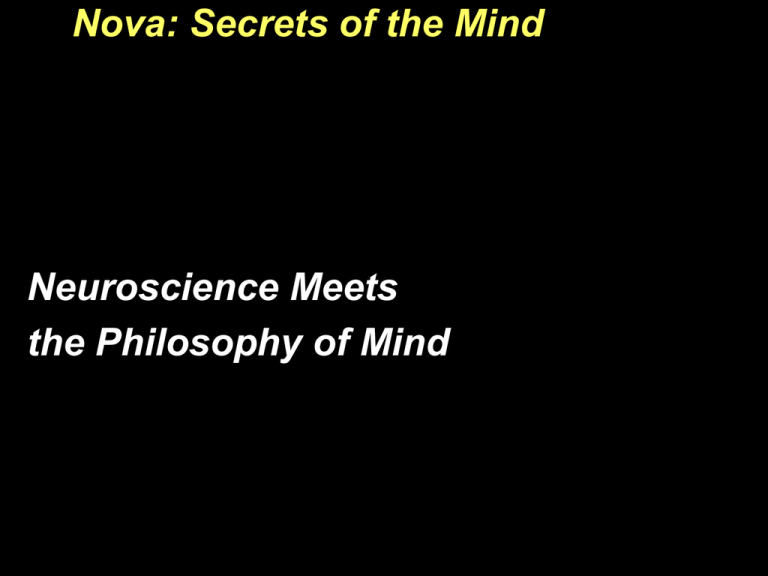
Nova: Secrets of the Mind Neuroscience Meets the Philosophy of Mind 2 Consciousness The subjective character of experience. What it’s like to be something. 3 Big Question of Consciousness (Blakemore) Is consciousness a special added extra that we conscious humans are lucky to have, or is it something that necessarily comes along with all those evolved skills of perceiving, thinking, and feeling? (Consciousness: A Brief Introduction, p. 11) Chalmers: YES! Nagel: We can’t know Dennett: NO! 4 The “Explanatory Gap” Seems like something that materialism can’t capture (or explain) Chalmers: “neuroscience cannot provide a full account of conscious experience” Easy Problem: “the objective mechanisms of the cognitive system” (p. 81) Hard Problem: “the question of how physical processes in the brain give rise to subjective experience.” The “Explanatory Gap”, con’t 5 Seems like something that materialism can’t capture (or explain) Nagel: Science is objective, consciousness is subjective. Two completely different approaches, science can’t appropriately study consciousness. We also have to expect that some facts will be unknowable. 6 Neuroscience Collecting data on brains Dr. Ramachandran 7 Our questions: What can the data provided by Neuroscience show us about the mind/body problem? What can neuroscience tell us about conscious experience? 8 Re: Mind/Body Problem Seems to: provide “clues about how certain brain structures control fundamental thought processes” Could this fill in the “explanatory gap”? Indicate that what we think can affect the brain’s processing Cf. phantom limbs and mirror box 9 Re: Consciousness Seems to show: that some elements of conscious experience might be necessary for human interaction. Does this answer the “Big question”? Does this answer Chalmers’ “hard problem”? Does it help with Nagel’s challenge?
